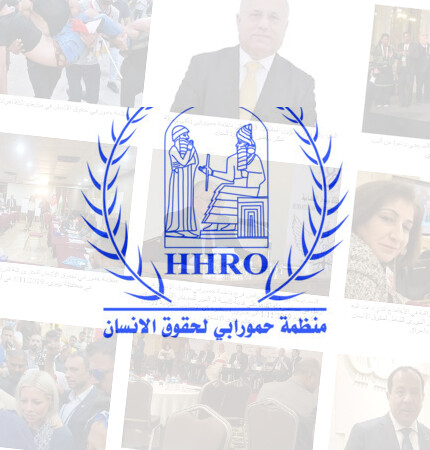
 Facebook
Facebook
 Twitter
Twitter
 YouTube
YouTube
 Telegram
Telegram
“Sanctions are delaying the reconstruction of Syria”
“Sanctions are delaying the reconstruction of Syria”
Normal life returns, security returns, but the prospects for ordinary citizens in Syria remain bleak. Human rights activist John Eibner describes impressions from his latest visit to Syria.
Vincenzo Capodici
“When asked about the war, many people in Syria speak in coded language. They say what has happened, but not who is responsible for it”, explains John Eibner, who has been travelling to Syria regularly since 2013. He has gained the impression during numerous conversations and several visits that a large part of the Syrian population sees dictator Bashar Al-Assad as the lesser of evils. A secular dictatorship is considered preferable to an Islamic dictatorship.
Above all, people are glad that a measure of normality and stability has returned in daily life. According to Eibner, there is some gratitude to the Russians, who intervened in the war two years ago in support of Assad. “For most people in western Syria, the war is largely at an end”, says the Swiss-American human rights activist.
Eibner is a member of the management of human rights organisation Christian Solidarity International (CSI), which has its headquarters in Zürich. He has recently returned from his ninth visit to Syria, where he travelled for some weeks in government controlled regions, visiting Tartus, Damascus, Seydnaya, Sadad, Homs and Aleppo, where CSI supports humanitarian projects. He noticed a considerable improvement in the security situation since he was last in Syria in February of this year. “In cities such as Aleppo, Homs and Damascus, people can go about their daily business without constant fear of snipers or bombs”, he says. “Psychologically, that makes a big difference”.
“There is more repair than reconstruction”
However, there is no sign of large-scale reconstruction in destroyed towns and villages, because the necessary funds are not available. “There is more repair than reconstruction” in Aleppo, for example, where Assad troops retook the eastern part of the city last year, with Russian help. Aleppo presents a bizarre scene: zones where there is total devastation exist right next to thriving shopping streets. Between the ruins, people are living a somewhat normal daily life. But the road back to normality is long.
Just 55 kilometres south west of Aleppo lies Idlib, where many rebels fled after their defeat in Aleppo. Idlib province is almost completely controlled by groups close to al-Qaida. “It is not certain that there will be a major battle for Idlib” believes Eibner, drawing on what he has heard from regional specialists. “The Russians are apparently in discussion with local leaders” and are pursuing ceasefires and de-escalation by means of a so-called Reconciliation Center. Following the model Russia has used in Chechnya, a potential deal would grant Sunni Muslims special rights in their locations in return for their non-interference in politics.
Christians: “We have no future here”
The only opposition force tolerated by the Assad regime, in Eibner’s view, is the Syrian Social National Party (SSNP), which is represented in parliament. The SSNP functions as a loyal opposition. The western-oriented Syrian opposition [e.g. the Syrian National Council and Syrian National Coalition] was organised before the war outside of Syria, and remains insignificant within the country.
In Eibner’s view, the armed uprising was always dominated by the Islamist rebels, and its alleged democratic character was a myth. The USA under President Barack Obama supported the apparently moderate rebels, hoping for the overthrow of dictator Assad. “The policy of ‘regime change’ has failed”, says Eibner. According to the Washington Post, US President Donald Trump stopped the CIA programme to arm Syrian rebels last spring.
Human rights organisation CSI welcomes the end of the CIA programme in Syria. Hundreds of thousands of displaced persons have since returned to Aleppo and other cities. Moreover, the security situation for Christians and other religious minorities has improved significantly. Yet the Christians with whom he speaks often say “we have no future here in Syria”. The war has destroyed the livelihoods of large sections of the population.
Sanctions worsen humanitarian conditions
Eibner believes that the economic war against Syria must be brought to an end. By which he means that the sanctions against Syria, imposed by America, Europe and Switzerland in 2011, should be lifted. “Sanctions never impact on those in power, because the powerful find ways to get around them”.
“Sanctions always have a devastating impact on the lives of ordinary civilians.” John Eibner
The healthcare services lack important medicines such as cancer-treating drugs, or else these are far too expensive. “People die as a result.” Donations and aid are also subject to sanctions; western banks refuse to make transfers which have anything to do with Syria.
A UNO study, funded by the Swiss Directorate for Development and Cooperation (Deza) of the Swiss foreign ministry, documents the negative consequences of sanctions for the humanitarian situation in Syria. Eibner believes that in view of its neutrality and humanitarian tradition, Switzerland should work towards an end to the sanctions. An interpellation to this effect was made in the Swiss parliament last March by Maja Ingold (EVP).
Besides the humanitarian issue, there is another reason why Eibner thinks sanctions should be lifted without delay: “As long as the sanctions continue, the reconstruction of the country will be seriously delayed. Syria could then become a chronically failed state’”.


